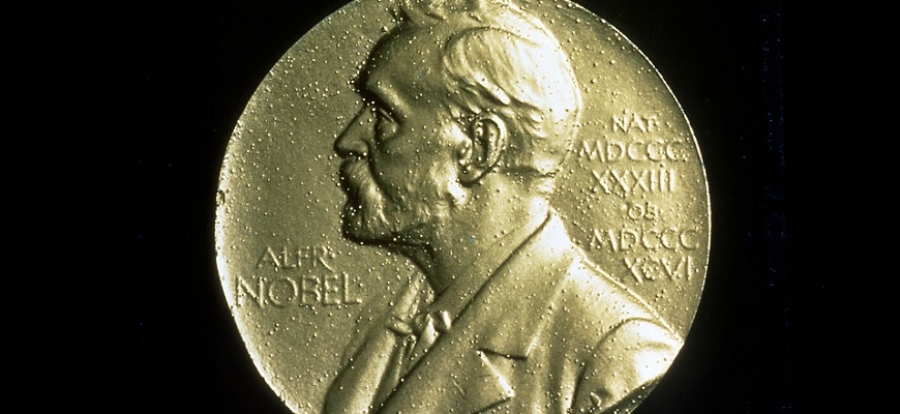We may not be Nobel Peace prize winners, but we do have the choice to develop as leaders, whether that is in learning, in volunteering, through the support we give to others, in our families and in our own approach to situations. Many acts of leadership will go unnoticed, but “We can all make a difference which contributes to positive outcomes for all.”collectively, just like the ICAN campaigners, we can all make a difference which contributes to positive outcomes - for an individual or for a greater good. The author Stephen Covey describes this as being like a trim tab; a small cog in a ship’s rudder which helps to guide the whole vessel (a metaphor attributed to Buckminster Fuller. Over the years, I have seen a redefining of leadership. Leading from the front with purpose and vision is crucial, but vision must be understood and shared so that people can lead in their own contexts and roles to collectively realise that vision.
The vision of the 1+2 policy in Scotland is to ensure that all learners have meaningful, quality experiences of two additional languages over and above their mother tongue. This not only supports the ability to communicate effectively in different languages, it also helps to build cultural awareness and intercultural understanding. It supports the development of literacy, numeracy, has benefits for health and wellbeing, and can be integrated and contextualised across the curriculum in what we teach and the pedagogical approaches we take. Although there is no hierarchy of languages taught, my current remit is in Mandarin and Chinese culture. As a professional development officer with a national remit for schools across Scotland, this a deviation from my role as Modern Languages curriculum leader in schools, but is a welcome way to experience a different kind of leadership and learn more about myself outside of my usual context.
Leading my own learning as well as that of others, working with colleagues from China and in the UK, and supporting the launch of Chinese Confucius Classroom hubs in schools is extremely rewarding. However, it would not be effective or possible without listening to, meaningfully collaborating with and always learning from the colleagues in schools and wider contexts with whom I work.
I could refer more closely to leadership literature and many renowned leaders in the field of leadership, yet I am not going to do that. I want to relay my own perspective on leadership with reference to my journey as an educator and, back to our old friend Confucius, as a human being. My personal leadership journey has been one of developing greater self-awareness, balancing priorities, learning from setbacks and finding a way forward. I wish to touch upon these one at a time.
Self-awareness
Self-awareness begins with honesty; being honest with ourselves and with each other – something which needs constant care and attention. In the rush of the world, it is easy to be harsh upon ourselves and upon others. Stepping back and considering new perspectives definitely allows us to understand ourselves more and to develop more empathy with colleagues, learners, family and friends. In my role, international education, intercultural understanding and communication have always been major influences which have helped me to develop an awareness of myself in different situations, but also of others and how they might see things differently.
However, this is a continuous journey in learning. The Japanese term “Kaizen” means “change for better” - in other words, continuous improvement in ourselves, in each other and in the way we contribute.
Listening
Listening is also very important; listening to colleagues, parents and carers, school leaders and their needs in different contexts. Sometimes this means being responsive, supportive and influential in the value of learning to learning generally and the development of metacognitive ability. However, it can also mean being flexible with the organisation and facilitation of professional learning, as well as the ability to be resourceful in diverse situations. Either way, taking the time to listen to what others need and to listen actively and non-judgmentally is a powerful tool for personal, interpersonal and organisational change. You can sometimes learn as much from what is not said as you can from what actually is mentioned. This clip from Dr Jutta Tobias, whose course about Mindful Leadership I was very fortunate to attend, explains the value of listening, noticing and being non-judgmental to organisational culture:
Getting the balance right
Balancing priorities can be tricky, especially given the nature of education and the unpredictability of life. In education, it is very easy to lose ourselves. Leadership is not superhuman. It is humane, compassionate, resolute, courageous and caring; caring about others and their development but also about our own. To this end, I have found coaching and mentoring to be very useful in developing leadership skills in myself and others.
My own experiences of leadership have been in the everyday contributions diverse people make in many fields to simply make life better for others. No need for hierarchies or heroes. In any leadership role, formal or informal, there are always conflicting priorities to which we need to pay attention. “It’s important to be open-minded, understanding, inclusive and flexible.”The need for balance is crucial if we are to remain healthy, resilient and productive in all of the main areas of our lives. In The 7 Habits of Highly Effective People, Covey encourages us to look at important areas of our lives to give ourselves the attention we need so that we can fulfil our own roles effectively. I have learned through my own experiences that this is vital, especially as priorities change and attention is required in many different areas of life.
Trial and error
Finally, learning from what does not work is as, if not more, important as learning from what does. Failing forward and using mistakes as a tool for learning is an excellent way to develop resilience (something which needs constant attention) and to keep growing. Not every situation works out exactly the way we might intend it to and just when there appears to be a clear pathway, it is not unusual to stumble upon an unseen challenge or obstacle we have not preempted. When I consider this, I know that these are the paths I have learnt from the most and I can see something positive or helpful has arisen from every one of them.
The journey
In conclusion, I would emphasise that by developing ourselves as leaders helps to build our confidence and willingness to take more risks and try new things. This can have a direct impact upon the learners with whom we work and our colleagues. The ability to embrace and model the above skills is essential if we are to provide learners with opportunities to grow and develop throughout school. Being open-minded, understanding, inclusive, flexible, having a shared vision and a purpose, being compassionate and courageous are all tools any of us can transfer to any role. You never know; every Nobel Peace Award winner started somewhere. The next one may be in our classrooms or closer than we think. In any position, if we have the courage, belief and burning passion to succeed as and to develop leaders, I can, you can, we can and so can they!
To me, leadership in any context is a journey, not a destination. It is also a way of being, a choice and is about hearts and minds. Leading the way, wherever and whatever that may be, is not a straight, simple road. It is one of continuous learning which changes and challenges, frustrates and elates but, above all, it is a way of learning from the everyday inspirational learners, colleagues and friends we meet along that road. And they need not all be in education. The best perspectives can be developed by working with and learning from a wide range of people from all walks of life. Lastly, remember to have fun and keep a healthy sense of humour on the journey. We all need that!
Want to receive cutting-edge insights from leading educators each week? Sign up to our Community Update and be part of the action!


















